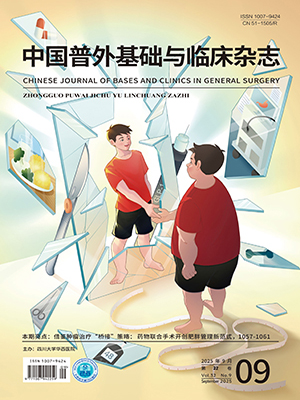Objective To evaluate the short-term clinical outcomes of transanal total mesorectal excision (TaTME) for mid-to-lower rectal cancer and provide evidence for clinical decision-making. Methods The relevant literature from domestic and international databases in recent years was reviewed to systematically assess the current application of TaTME in the treatment of mid-to-low rectal cancer. A comparative analysis was conducted between the TaTME and laparoscopic total mesorectal excision (LapTME), focusing on intraoperative outcomes, short-term postoperative recovery, intraoperative and postoperative complications, oncological prognosis, and the learning curve. Results Conventional LapTME presented significant challenges in performing precise maneuvers within the pelvis and around the rectum, particularly in patients with “difficult pelvis” characteristics such as obesity, narrow pelvis, or male anatomy. In contrast, TaTME demonstrated certain advantages, including improved visualization of anatomical planes, reduced intraoperative bleeding, lower conversion rate to open surgery, faster short-term postoperative recovery, and enhanced specimen quality. Conclusion TaTME is a safe procedure with short-term outcomes, which is superior or comparable to those of laparoscopic surgery, offering a new surgical option for the treatment of mid-to-lower rectal cancer.
Citation:
WANG Zhenning, ZOU Min, WANG Dechen, YANG Kang, GUI Mingbin, XU Ming. Current status and advances in clinical application of transanal total mesorectal excision for mid-to-lower rectal cancer. CHINESE JOURNAL OF BASES AND CLINICS IN GENERAL SURGERY, 2025, 32(7): 895-902. doi: 10.7507/1007-9424.202412044
Copy
Copyright © the editorial department of CHINESE JOURNAL OF BASES AND CLINICS IN GENERAL SURGERY of West China Medical Publisher. All rights reserved
| 1. |
|
| 2. |
|
| 3. |
|
| 4. |
|
| 5. |
|
| 6. |
|
| 7. |
|
| 8. |
|
| 9. |
|
| 10. |
|
| 11. |
|
| 12. |
|
| 13. |
|
| 14. |
|
| 15. |
|
| 16. |
|
| 17. |
|
| 18. |
|
| 19. |
|
| 20. |
|
| 21. |
|
| 22. |
|
| 23. |
|
| 24. |
|
| 25. |
|
| 26. |
|
| 27. |
|
| 28. |
|
| 29. |
|
| 30. |
|
| 31. |
叶景旺. 经肛门全直肠系膜切除在中低位直肠癌手术治疗中的应用. 重庆: 陆军军医大学, 2019.
|
| 32. |
|
| 33. |
|
| 34. |
|
| 35. |
|
| 36. |
Vilaça JDPM. Minimal invasive surgery: Contribution of three dimensional image on single-site endoscopic surgery dissertation. Braga, Portugal: Universidade do Minho, 2021.
|
| 37. |
|
| 38. |
|
| 39. |
|
| 40. |
|
| 41. |
|
| 42. |
|
| 43. |
|
| 44. |
|
| 45. |
|
| 46. |
|
| 47. |
|
| 48. |
|
| 49. |
|
| 50. |
|
| 51. |
|
| 52. |
|
| 53. |
|
| 54. |
|
| 55. |
|
| 56. |
|
| 57. |
|
| 58. |
|
| 59. |
|
| 60. |
2017 European Society of Coloproctology (ESCP) collaborating group. An international multicentre prospective audit of elective rectal cancer surgery; operative approach versus outcome, including transanal total mesorectal excision (TaTME). Colorectal Dis, 2018, 20 Suppl 6: 33-46.
|
| 61. |
|
| 62. |
|
| 63. |
|
| 64. |
|
| 65. |
|
| 66. |
|
| 67. |
|
| 68. |
|
| 69. |
|
| 70. |
|
| 71. |
|
| 72. |
|
| 73. |
|
| 74. |
|
| 75. |
张忠涛, 郑民华, 姚宏伟, 等. 直肠癌经肛全直肠系膜切除专家共识及手术操作指南(2017版). 中国实用外科杂志, 2017, 37(9): 978-984.
|
- 1.
- 2.
- 3.
- 4.
- 5.
- 6.
- 7.
- 8.
- 9.
- 10.
- 11.
- 12.
- 13.
- 14.
- 15.
- 16.
- 17.
- 18.
- 19.
- 20.
- 21.
- 22.
- 23.
- 24.
- 25.
- 26.
- 27.
- 28.
- 29.
- 30.
- 31. 叶景旺. 经肛门全直肠系膜切除在中低位直肠癌手术治疗中的应用. 重庆: 陆军军医大学, 2019.
- 32.
- 33.
- 34.
- 35.
- 36. Vilaça JDPM. Minimal invasive surgery: Contribution of three dimensional image on single-site endoscopic surgery dissertation. Braga, Portugal: Universidade do Minho, 2021.
- 37.
- 38.
- 39.
- 40.
- 41.
- 42.
- 43.
- 44.
- 45.
- 46.
- 47.
- 48.
- 49.
- 50.
- 51.
- 52.
- 53.
- 54.
- 55.
- 56.
- 57.
- 58.
- 59.
- 60. 2017 European Society of Coloproctology (ESCP) collaborating group. An international multicentre prospective audit of elective rectal cancer surgery; operative approach versus outcome, including transanal total mesorectal excision (TaTME). Colorectal Dis, 2018, 20 Suppl 6: 33-46.
- 61.
- 62.
- 63.
- 64.
- 65.
- 66.
- 67.
- 68.
- 69.
- 70.
- 71.
- 72.
- 73.
- 74.
- 75. 张忠涛, 郑民华, 姚宏伟, 等. 直肠癌经肛全直肠系膜切除专家共识及手术操作指南(2017版). 中国实用外科杂志, 2017, 37(9): 978-984.




